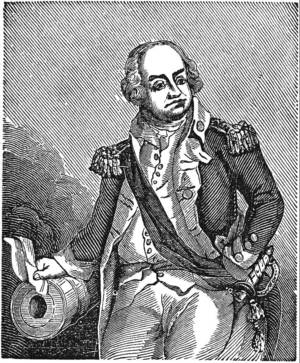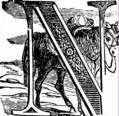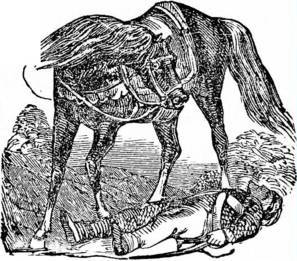Thrilling Incidents In American History
• Preface
Revolutionary War
• Opening Of The Revolution
• The Boston Massacre
• Affair of the Sloop Liberty
• Affair of the Gaspee
• The Tea Riot
• The Boston Port Bill
• The First Continental Congress-Consequent Parliamentary proceedings
• Organization of the Minute-Men
• Patrick Henry-Second Provincial Congress-First Military Enterprise
• Battles of Lexington and Concord
• Battle of Bunker's Hill
• Capture of Ticonderoga
• Second Continental Congress-Washington's Appointment
• Siege of Boston
• Incidents at the Evacuation of Boston
• Burning of Falmouth
• Arnold's Expedition to Quebec
• Siege of Quebec, and Death of Montgomery
• Scenes at Quebec during the Siege
• Expedition against Charleston
• The Declaration of Independence
• The Battle of Long Island
• Washington's Retreat through New Jersey-Capture of General Lee
• Battle of Trenton
• Battle of Princeton
• Capture of General Prescott
• Battle of Brandywine
• Battle of Germantown
• Battle of Red-Bank
• Attack on Fort Mifflin-Retirement of the Army to Valley Forge
• Battle of Bennington
• Murder of Miss M'Crea
• Battle of Stillwater
• Battle of Bemis' Heights, and Retreat of Burgoyne
• Capture of Forts Clinton and Montgomery
• Surrender of Burgoyne
• The Treaty with France
• Attack on Savannah, and Death of Pulaski
• Storming of Stony Point
• General Sullivan's Campaign against the Mohawks
• Tarleton's Quarters
• Battle of Camden, and Death of De Kalb
• Arnold's Treason
• The Loss of the Randolph
• The British Prison-Ships
• Capture of the Serapis
• Putnam's Feat at Horseneck
• Battle of Eutaw Springs
• Wayne's Charge at Green Spring
• Capture of the General Monk
• The Mutinies
• Battle of the Cowpens
• Capture of New London
• Massacre of Wyoming
• Surrender of Cornwallis
War With France
• Capture of L'Insurgente
• The Constellation and Vengeance
War With Tripoli
• Burning of the Philadelphia
• Bombardment of Tripoli
• Loss of the Intrepid
• Expedition of General Eaton
Second War With England
• Battle of Tippecanoe
• Capture of the Guerriere
• Tragical Affair of an Indian Chief
• Battle and Massacre at the River Raisin
• Captain Holmes's Expedition
• Capture of the Caledonia and Detroit
• The Wasp and Frolic
• Gallant Conduct of Lieutenant Allen at the Capture of the Macedonian
• Capture and Destruction of the Java
• Siege of Fort Meigs
• Capture of York, and Death of General Pike
• Defence of Sackett's Harbour
• Defence of Fort Stephenson
• Battle of Lake Erie
• Battle of the Thames
• Gallant Action of Commodore Chauncey under the guns of Kingston Citadel
• The Sacking of Hampton
• Capture of the Peacock
• Massacre at Fort Mimms
• Surrender of Weatherford
• Battle of Niagara
• BattIe of New Orleans
War With Mexico
• Battle of Palo Alto
• Battle of Resaca de la Palma
• Capture of Monterey
• Battle in the Streets of Monterey
• Thrilling Scenes in the Battle of Buena Vista
• Bombardment of Vera Cruz
• Battle of Cerro Gordo
• Battles of Contreras and Churubusco
• Storming of Chapultepec


General Lincoln
SURRENDER OF CORNWALLIS.
 0 officer in the British army
did more for the cause of his
king, or better deserved success,
than did Lord Cornwallis.
Fertile in stratagem,
brave and persevering even
to rashness, rapid in the combination
and execution of his plans, he moved as a
superior among all the English generals of the revolution.
During the campaigns in the Jerseys, and
around Philadelphia, he was continually in the most
arduous and weighty services; and when the South
became the favourite field of the ministry, he was
appointed to command in that quarter. There his
very name was a terror; and the boldest troops relaxed
from their bearing when it was announced that
Cornwallis was their enemy.
0 officer in the British army
did more for the cause of his
king, or better deserved success,
than did Lord Cornwallis.
Fertile in stratagem,
brave and persevering even
to rashness, rapid in the combination
and execution of his plans, he moved as a
superior among all the English generals of the revolution.
During the campaigns in the Jerseys, and
around Philadelphia, he was continually in the most
arduous and weighty services; and when the South
became the favourite field of the ministry, he was
appointed to command in that quarter. There his
very name was a terror; and the boldest troops relaxed
from their bearing when it was announced that
Cornwallis was their enemy.
The 19th of October, 1781, was the day apppinted for the surrender of the garrison at Yorktown. At twelve o'clock, the combined army was drawn up in two lines; the Americans on the right, commanded by General Washington, in full uniform, and attended by his aids; on the left, were' the French troops under Count Rochambeau, and his suite. The French marched to their stations finely dressed, and with regular dignified step, to the sound of national music. In every direction thousands of spectators, grouped into crowds, were eagerly anticipating a sight of that formidable army, whose presence they had so often fled. Horses, carriages, every kind of vehicle, were extended in long rows, filled in many places with anxious spectators.
At length a movement was observed in the town, and soon General O'Hara, mounted on a splendid charger, issued from the gates. Every eye was riveted to the spot, in order to get a view of Cornwallis -the proud conqueror of the South. Slowly and gracefully O'Hara rode toward Washington, and yet the earl appeared not. Then the British general approached the commander, removed his hat, and was referred to General Lincoln. Now the mystery was explained. Cornwallis would not appear as a prisoner of those he had been so long accustomed to conquer.
Slowly following their general, came the British troops, with shouldered arms, cased colours, and treading to the solemn tones of a national march. They were met by General Lincoln near the centre of the enclosed space, and conducted to the field where the ceremony was to take place. They were dressed in uniform entirely new, which presented a beautiful appearance; but their march was irregular and disorderly, and the ranks frequently broken. But when the last act of their humiliation came, when they were to resign the arms with which they had so frequently swept everything before them, shame and mortified pride could no longer be concealed. The command to ground arms, seemed torn by compulsion from most of the officers; and was obeyed by many in a manner irritable and sullen. Observing this, Lincoln rode along the line and restored order. At the same time the troops at Gloucester Point surrendered in a similar manner to General de Chaise.
The whole number that capitulated at Yorktown, was seven thousand two hundred and forty-seven; seventy-five brass, and one hundred and sixty-nine iron cannon; seven thousand seven hundred and ninety-four muskets; eighteen German standards and ten British ones, with a large amount of provisional and other stores were taken. The military chest contained two thousand one hundred and thirteen pounds six shillings, sterling.
The news of the capture and surrender of Cornwallis, produced an effect throughout the country unappreciable by those who live at a later day. When the panting messenger announced to Congress, that Cornwallis had fallen, the door-keeper swooned at his station; the voice of the orator was hushed; all business was suspended, and the members hastened to the temple of God, to return pubJic thanks to Almighty Providence. The workman Jeft his tools; the student his closet; and even ladies their seclusion; crowds rushed through the streets and lanes, or assembled in groups, reading the news to the unlearned. The rich and the poor, the slave and his master; the gentleman and the mendicant, were for a moment equal; and one wild shout-the burst of a nation's exultation, pealed up throughout the land. The Hector of the British host had fallen, and all felt that his cause could not long survive.
